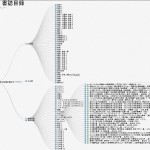Database
Over the years, area studies has focused on many different areas and under different research agendas, and collected and produced many academic results. In order to share this accrued knowledge from areas that have been the focus of research with the broader research community, and those who have provided knowledge, there is a strong need for the organization, sharing and application of a comprehensive database. This division is focused on the creation of such a database to foster international information sharing.
At present, the Center for Integrated Area Studies (CIAS) is developing a platform which is based on area studies information in its possession. With this information, we are constructing a database which will allow comprehensive and integrated retrieval of information.
Through this, we aim to improve data processing on this program and put into place an area studies information processing system. In the first year of this project, we aim to share map data housed in the various libraries of CIAS, CSEAS and other participating institutions and allow for this information to be searched for in various languages.
Report
Area studies comprises a diverse mixture of research domains and requires that data, information, and knowledge be shared across boundaries of these domains when attempting to understand the movement of people, goods, and money across national boundaries and a region as a single unit. As such, there is a need to develop a scheme for (1) compiling various research resources into a database, (2) sharing the contents of this database, and (3) enabling the use of this database. The Kenkyu-Seika-Kokusai-Kyoyuka group [Group to Promote the International Sharing of Research Resources] has been tasked with researching and developing such an information system. Specifically, the group plans to employ the Integrated Database for Area Studies that is currently under development by the Center for Integrated Area Studies at Kyoto University (CIAS) for this purpose. The Integrated Database for Area Studies—which offers a variety of functions including support for database creation, a resource sharing function to enable the simultaneous search of multiple databases, a spatiotemporal search function, and a web-access function —should enable relatively straightforward construction of a database with advanced information processing capabilities. Employing this platform as a foundation, we will pursue development of an Area Studies information processing system that offers the information processing functions necessary to support the “Southeast Asian Studies for Sustainable Humanosphere” project.
In 2011, we developed a system that integrates and enable multi-language search of 37 databases from five institutions (Kyoto University Center for Integrated Area Studies, Kyoto University Center for Southeast Asian Studies (CSEAS), National Museum of Ethology, Research Institute for Humanity and Nature, and the Hokkaido University Slavic Research Center). A trial version of this multi-language resource sharing system is currently available through the CIAS and CSEAS websites (Fig. 1~3).
In 2012, we focused on system development from the standpoint of how to best organize, integrate, and make available the collection of areas studies research resources. Specifically, we created an archival database comprising 2,567 books and pamphlets, 6,906 reprints and research documents, and approximately 5,000 photographs taken in the field belonging to Kyoto University Professor Emeritus Yoneo Ishii (1957~2010). In addition to copies of the Law of Three Seals (Thailand), historical maps of Thailand, and fragile Palm Leaves manuscripts, the archive contains various documents pertinent to Southeast Asian studies and research on Thai history, law, and language. In terms of language-related resources, the archive contains valuable documents related to languages used in the Shan and Tham alphabet cultures of the Thai language regions and the Mon culture in neighboring countries along with literature regarding the Netherlands, France, Sri Lanka, and India, etc. This archival database is unique in that, in addition to conventional string searches (Fig. 4), it incorporates novel search methods including a graphical user interface called the Kasoushoka [virtual bookshelf] (Fig. 5) and a conceptual search using keyword networks based on the concurrence of terms found in document titles, etc. (Fig. 6). We are planning to launch a test version of the research resource archive database for public use in the near the future.
Search
Fellowships, Call for Papers
- [2016/09/09]
- [2016/08/08]

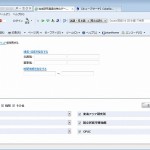
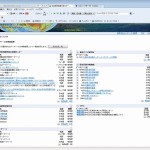
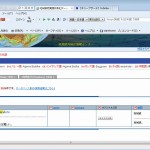
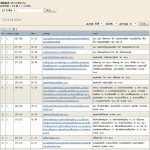
![Fig. 5: The Kasoushoka [virtual bookshelf] page from the research resources archive system](/sea-sh/wp-content/uploads/2013/11/Fig_5_en-150x150.jpg)
